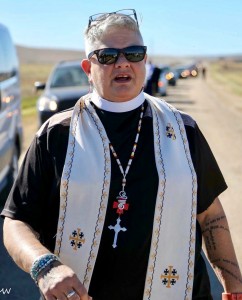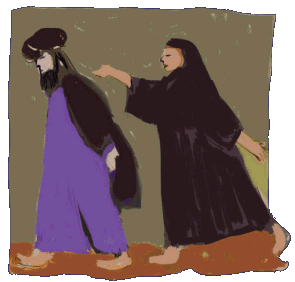Welcome to Brass Tacks Sunday
John 15:9-17
Welcome to Brass Tacks Sunday. This is the day when Jesus makes clear – crystal clear – what he has done and what he expects of us.
And what has he done for us?
He chose us.
We did not choose Jesus.
Jesus chose us.
Jesus chose you. And you. And you, and you, and you, and yes, you …
And me.
All of us.
Brass Tacks: We have been chosen.
And why did Jesus choose us?
Because Jesus has a job for us, a mission for our lives.
To love one another as Jesus loved us.
Brass Tacks: We are chosen in order to love our neighbors. Not just as ourselves … because if we are honest, there are far too many days when we don’t love ourselves very much. We all know those times. For many of us, when we stop on the scale. When someone makes a snide comment about the clothes we’re wearing. Or the work we do. Or the car we drive. Or what we eat. Or don’t eat. Or drink. Or don’t drink. Some days, it takes so very little for us to stop loving ourselves.
Which is why Jesus doesn’t ask us to love our neighbors as ourselves. Jesus asks us – no, he commands us – to love one another as he loved us.
Nothing more.
Nothing less.
Just Brass Tacks.
We all know there are a lot of different interpretations of the Christian faith out there right now. The arguments over what it means to be a Christian are being fought in our own Church, and in this country, vociferously and all too often, viciously. We know this. We have heard it, we have witnessed it, and sometimes, we have participated in these arguments. Some people say, “Christianity means ‘A, B, C.’ Others say, “No, it means ‘whack, whack, whack.’” And still others say, “No, it means, ‘yadda, yadda, yadda.’”
All we do is argue, it seems, and for the life of me, I can’t figure out why.
Because Jesus is crystal clear: I chose you so you can go love one another.
Brass Tacks.
• • •
I’m going to say something here, and then I’m going to have to correct myself right away.
For 17 years, I owned two cats.
Here’s the correction: For 17 years, the cats owned me. Anyone who has ever lived with cats know that to be the truth.
The older cat was named Boomerang. She was truly the Queen Witch of the household, and she never – ever – let you forget that.
The younger cat, who was 14 when I left to go overseas, was named Riki Tiki Tavi ( actually, Rrrrrrrikiii Tiki Tavi, because that’s how it is said in the book).
These two cats clearly ran the household, doing exactly what they wanted. And why not? They were cats, and they knew that they were born without original sin, whereas we, the mere humans, were born with original sin, and they never let me forget that.
The house where we lived had a foundation crawl space, which was inhabited, as near as I can figure out, by approximately 1 million crickets. Every night, the two cats would go down to the kitchen and crouch in a corner, staring intently at what they knew was a hole between the kitchen and the foundation. (I honestly never found the hole in all the years I live there.)
The cats would hunker down, with their tails twitching, and their ears pointed forward, staring intently … waiting … waiting …
Meanwhile, I am convinced, down below, the crickets would gather, and one would cry out, “Who will go up into the light, and then come back to tell us what is up there?” And each night, the crickets would send up one – one – representative, and Boomer and Riki would catch it and play with it – because that’s what cats do – and eventually kill it, and the next morning, I would find body parts strewn around the house, usually placed exactly where I would step on them barefoot.
For years, I was under the impression that the cats were bringing me tribute. That’s what the animal experts told me, and I believed them – although why I did I don’t know, because remember, the cats thought they were superior to me, so why should they bring me tribute?
And then I read some new information. It turns out that the cats were not bringing me tribute. They were actually trying to teach me to hunt! That’s right, they were trying to teach me!
 It’s called the Mama Lion Method of Ministry.
It’s called the Mama Lion Method of Ministry.
You’ve seen the Animal Planet shows, right? Well, if you watch that show, you’ll see, in great detail, how Mama Lions train their cubs to hunt.
When the cubs are small and still nursing, she’ll bring them pieces of the animals she kills, not so that they can eat, but so that they can play with the carcasses and, frankly, get the taste for blood.
When the cubs are a bit older, and on the verge of being weaned, she’ll take them to the hunt, place them in a hidden and safe spot, and make them stay still, so they can watch and learn. And let me tell you, if they so much as move, she whaps them upside the head to keep them in line.
After they’ve watched and learned, the Mama Lion helps them hunt. She’ll pick out the target animal – something small and weak, usually – and help the cubs take down the animal.
Once they’ve gotten used to hunting, and had some measure of success, the Mama Lion will go to the hunt with them, but now, she’s the one who settles in on the sidelines. She may direct her cubs in picking out an animal to kill, but she won’t do a thing beyond that to help them.
Because it’s time for the cubs to grow up and feed themselves. She’s got other things to do – have more cubs – so she lets them feed themselves.
In essence, throughout their training, the Mama Lion says to her cubs, “See? It’s not that hard. You can do this too!”
And isn’t that what Jesus did for his disciples? And for us?
Didn’t Jesus teach his disciples how to preach? And teach?
Didn’t he show them how to heal the sick?
Didn’t he teach them to pray? And not just any prayer, but the prayer, the Lord’s Prayer, giving the disciples, for the first time, an intimate way to talk to God on high?
Didn’t he send them out to do all these things, not alone, but two by two (because we are never alone in our ministry)?
Face it, folks: Jesus used the Mama Lion Method of Ministry to teach his disciples – to teach us – how to love our neighbors not as ourselves but as Jesus loved us.
Jesus chose us and taught us so that we could love just as deeply, just as broadly, as he loved us.
Brass Tacks.
Now I know this sounds rather simplistic, and I know people say (because they have said it to me repeatedly), “That’s nice. But what does it mean? It’s too vague.” As though love were something hard to understand, hard to give, hard to receive.
Or they’ll say, “Well, of course we are to love one another.” And then turn around and say, “Well, not that person. Because I don’t like that person. Because his dog poops on my lawn every night, and he never picks up after it. So I’m certainly not going to love that person.”
As though Jesus differentiates between those he loves, and those he doesn’t love.
On this day, on Brass Tacks Sunday, understand this:
Jesus is not suggesting we live in love.
Jesus is commanding that we do so.
He has chosen us – us – to carry on his mission in the world.
This is now our mission in life.
To love.
Not just the people we like, not just the people we know, but everyone. Regardless of race or religion or ethnicity or nationality or gender or orientation.
Everyone.
The good news for us this morning is that as Episcopalians, we not only know what we are supposed to do, we know how we are supposed to do this.
Because we have the Baptismal Covenant, which lays out for us the steps we need to take so that we indeed can love one another as Jesus loved us. Take our your prayerbooks and look it up. Turn to page 304.
What does it tell us to do?
To continue in the apostles’ teaching and fellowship, and the prayers. Tell me: How many of you say prayers before you eat? And how many of you pray in public before you eat? That’s what we have vowed to do, remember.
We break bread together at this table, welcoming all, sharing all that we have with each other.
We know how to repent of our sins – we’ve done the Hokey Pokey in this very church, have we not?
We serve others … instead of demanding to be served.
We work for justice and for peace … and not for our justice and peace, but for God’s justice and peace … even if it means that some will deride us and question our motives.
And we respect each other … always.
Again, some of us may say, “This is too hard. It’s too vague. I don’t understand.”
Well, let me tell you, on Brass Tacks Sunday:
Yes, this is hard. It’s very hard to love someone, especially when you don’t like them. But there is nothing vague about loving. We either love or we don’t.
We didn’t choose.
We have been chosen.
Brass Tacks.
Amen.
Sermon preached on the Sixth Sunday of Easter, 13 May 2012, Year B, at the Church of the Good Shepherd, Blue Grass, Va.
It is past time to listen to God
He has told you, O mortal, what is good;
and what does the Lord require of you
but to do justice,
to love kindness
and to walk humbly with your God?
(Micah 6:8)
In just one week, the U.S. government could come to a crashing halt.
Really.
All because our Senators and Representatives have not bothered to do their jobs.
Since receiving, in January 2010 – more than a year ago, mind you – President Obama’s proposed budget, Congress has managed to pass no spending bills. That’s right. Not one. All our representatives have managed to do is pass continuing resolutions, leaving for tomorrow what they could have done today – or yesterday, for that matter.
I’ve been trying to figure out what will happen next week, when the government does shut down. You can go on-line and find all kinds of analyses about who will be considered essential (um, our representatives, the leaders of government, claim this for themselves) and who will not be (um, those would be the people who actually do the work of government). The people who make sure Americans get paid? Non-essential. The people who make sure contractors get paid? Non-essential. The people who fill out the forms that ensure that Americans receive their benefits? Non-essential.
This list goes on and on, but you get the idea. In the minds of our representatives, they are essential. Most every else? Not so much.
So I wonder, as I have many times before, how our representatives are meeting God’s injunction to us? How is shutting down the government over ideology doing justice? How is it loving kindness?
\And how, pray tell, could anyone think that this massive power play – mirrored by the one playing out in Wisconsin right now – has anything to do with walking humbly with God? (Posturing instead of caring for the people entrusted to them shows a distinct lack of humility, I believe.)
In all this grandstanding, no real efforts are being made to trim the budget or lessen the deficit, because only small portions of the budget are actively in play. And the parts that have been put into play? Why, those would be the parts in which the poor, the needy and the forgotten are cared for. Those would be the parts in which women are treated with respect and dignity, in which children who have had the bad fortune to be born into poverty are fed, in which our veterans are cared for by a grateful nation that thanks them for their service. Those are the parts the so-called fiscal conservatives are chopping. Defense? Never on the table. Poor people who don’t contribute to campaigns? They are being ignored and forgotten.
Jim Wallis over at Sojourners wrote an excellent article yesterday on the God’s Politics blog (click here or look under “Articles you should read” for the link). In it, he points out that all this posturing is not about money, not about deficits, but about politics, ideology and hypocrisy.
In closing, Mr. Wallis writes:
“Let me offer a word to those who see this critique as partisan. I’ve had good friendships with Republican members of Congress, but not the kind who get elected by their party anymore. But let’s be clear, when politicians attack the poor, it is not partisan to challenge them; it is a Christian responsibility.
“This is wrong, this is unjust, this is vile, and this must not stand. Next week, thanks to your support, look for a full-page ad in Politico signed by faith leaders and organizations across the country that asks Congress a probing question: “What would Jesus cut?” These proposed budget cuts are backwards, and I don’t see how people of faith can accept them. And we won’t.”
Our elected leaders are not doing their jobs. Instead, they are playing games – and getting paid, handsomely, to do so.
Just as we want these leaders to listen closely to what God has to say through the prophet Micah, so we need to listen as well. If we want justice done, if we truly love kindness, and if we are willing to walk humbly with our God, then we need to step up as well. That’s what has been happening in Wisconsin, Ohio and Indiana for the past several days: The people have turned out in force, claiming their voices, claiming their rights.
If we want to avoid another government shutdown fiasco – which, by the way, will ultimately cost us billions, according to estimates – then we need to speak up. We need to make sure our Representatives and Senators understand that it is time for them to set aside their agendas and ideologies and do the right thing, which is to be responsible, to be caring, and to serve the people entrusted to them.
Shutting down the government serves no purpose other than to harm those most in need, while those with the most suffer not at all.
God is depending on us
Luke 18:1-8
There are times when our Lord Jesus Christ is trying to teach us something and to do so, he tells us a parable – and then he pretty much leaves us to figure out what the parable means in all its aspects, and we often end up … confused.
This morning is one of those times.
The parable of the Widow and the Unjust Judge is one most of us have heard before. Jesus tells his disciples to pray always
and not to lose heart, and then illustrates that command with a parable that at first blush seems to back up his instructions.
But then we take a deeper look at it, and we think, “Wait a minute.”
Are we being told that God doesn’t answer our prayers unless we storm the gates of heaven, that God pays no attention to the first time, the second time, the third, the fourth, the fifth time we pray?
Are we being told that God is like this unjust judge, who only gave in to the widow because he didn’t want a black eye (that’s the literal translation from the Greek of “wear me out”)? That God only answers our prayers in order to avoid being publicly embarrassed (as if that were even possible)?
At first blush, those do seem to be the points of the parable.
Thankfully, the parable is about neither of those points.
We do not need to storm the gates of heaven repeatedly, hoping that eventually, God will pay attention. (God hears us the first time we pray.) And we do not need to worry about whether God is just or unjust. (We know God is just, because if God were not just, God would not be God.)
This parable, my friends, is about the kingdom of God on earth. It is about God’s will being done. It is about God’s justice reigning in this world.
Only by turning this parable over and focusing on the widow and what she does in the face of great injustice do we figure that out.
You see, in the days when our Lord Jesus Christ walked the earth, widows had nothing. They had no rights – no right to speak in public, no right to property, no right to testify in a court of law. Everything their husbands owned went to the husbands’ male relatives. If those relatives didn’t like the widow, or were greedy and wanted everything for themselves, they could throw the widow out on the street, and there was little the widow could do about it. Because widows had no rights. They had no one to speak for them. No one to stand up for them. No social safety net. No women’s center. No pro bono lawyers – no one.
The widow in this story? It’s obvious that she was all alone. There was no one was standing up for her. She wasn’t getting any justice from her husband’s family … that’s why she was going to the judge repeatedly. No one was taking her side – that’s why she argued before the judge alone. But even when that fool of a judge – and he was a fool, because he wasn’t even smart enough to fear God and he had no respect for anyone in the community – even when he refused repeatedly to hear her case and give her the justice that God demands, the widow refused to quit.
She knew her rights, this widow, the rights that came directly from God. She knew that from the beginning and to the end of time, God was on her side. Throughout the Torah, the Law of Moses, God places special emphasis on caring for widows, orphans and strangers.[1] Eleven times in Deuteronomy alone, God commands his people: Take care of the widows, the orphans and the strangers. So this widow knew: God was on her side. And no foolish judge was going to stop her from getting what God said was hers.
And therein, my friends, lies the real lesson of this parable:
Do not quit.
Even when the odds are against us, this parable teaches us that we are not to stop working for God’s kingdom, for God’s justice, for God’s love, for God’s hope.
Even when the kingdom seems out of reach, when there seems to be no justice in sight, or love to embrace, or hope to cling to, Jesus tells us to keep trying, to keep pushing. Because one day – one day – when enough people focus on God’s kingdom – and not their own; on God’s justice – and not society’s; on God’s inexplicable, eternal, wild, radical love – and not humanity’s limited, short-sighted, mean-spirited imitation of the same; when people embrace God’s incredible hope – and reject humanity’s hopelessness – when all that happens, God’s justice will roll down like waters and righteousness will flow like an ever-flowing stream.
No matter how hard it seems, Jesus is telling us, no matter how hopeless it seems … do not quit.
So why does Jesus tell us this in the context of a command to pray always?
Because in Jesus’ scheme of life, prayer is more than simply asking for something. Prayer is about doing something. It’s about doing those things for which we pray!

The Statue of Reconciliation, by Josefina de Vasconcellos. It sits amid the ruins of Coventry Cathedral, which was destroyed by German air forces during WWII. A replica of this statue was donated by the people of Coventry to the peace garden of Hiroshima.
It is not enough to simply ask God for peace in this world. If we want peace, Jesus says, we’re going to have to work for it. We don’t have peace in this world because there are far too many people who reject it. Those of us who want it, who pray for it, Jesus says, are going to have to work for it.
It is not enough to simply ask to God to watch over those in need this day. If we want people to have enough – not everything, but enough – we are the ones who are going to have to give them enough. This day!
Jesus tells us this parable so that we can understand: We have to actively work for that for which we pray, even when it seems hopeless. Because in God’s scheme of life, there is always hope. There is always justice. There is always love.
I know this. I have witnessed this.
For four years I served as your missionary in Sudan, a war-torn nation where more than 3 million people have died in the last 40-some-odd years of war, and another 5 million people have lost their homes. At one point in Sudan, someone was dying – either in civil war or as a result of civil war – every 6 seconds.
Every day, the people pray for peace. They’ve been praying for peace for decades. But they don’t simply ask God for peace and then sit around passively waiting for it. They work for it! Like the widow in today’s Gospel, they refuse to quit. The odds are against them, the world is pretty much ignoring them, their enemies are salivating over the chance to annihilate them. But they won’t quit working for peace.
Right now – facing yet another civil war that is threatening the lives of nearly 10 million southerners in that divided land – they are working for that peace they so desperately desire. This very day, the Archbishop of the Episcopal Church of Sudan is in this country, seeking the help of the U.S. government and the United Nations, so that they don’t face yet another genocide come January, when South Sudan will vote on whether to become an independent nation. Every day, our brothers and sisters in Christ in Sudan, who are related to us not by the blood of their birth but by the waters of their baptism, not only pray for peace. They work for it.
And this is our mission, too.
This is the mission of the Church:
To actively work for that for which we pray. Even when the world tells us it’s never going to happen. Even when the world conspires to stop us.
Our mission is to never give up.
Whenever we see an injustice, whenever we are encounter hatred, whenever we feel hope slipping away, Jesus says to us: do not quit. Do not give up.
We are supposed to be like the widow in today’s Gospel: Always striving for God’s kingdom, for God’s justice, for God’s love, for God’s hope.
God is depending on us.
Amen.
A sermon preached on the 21st Sunday after Pentecost, Proper 24, Year C, 17 October 2010, at St. Anne’s Parish, Scottsville, Va.
[1] Exodus 22:22; Deut. 10:18, 14:29, 16:11, 16:14, 24:17, 24:19-21, 26:12-13, 27:19.






